Tips for Tired Parents: A Guide On How To Get Your Kids To Sleep
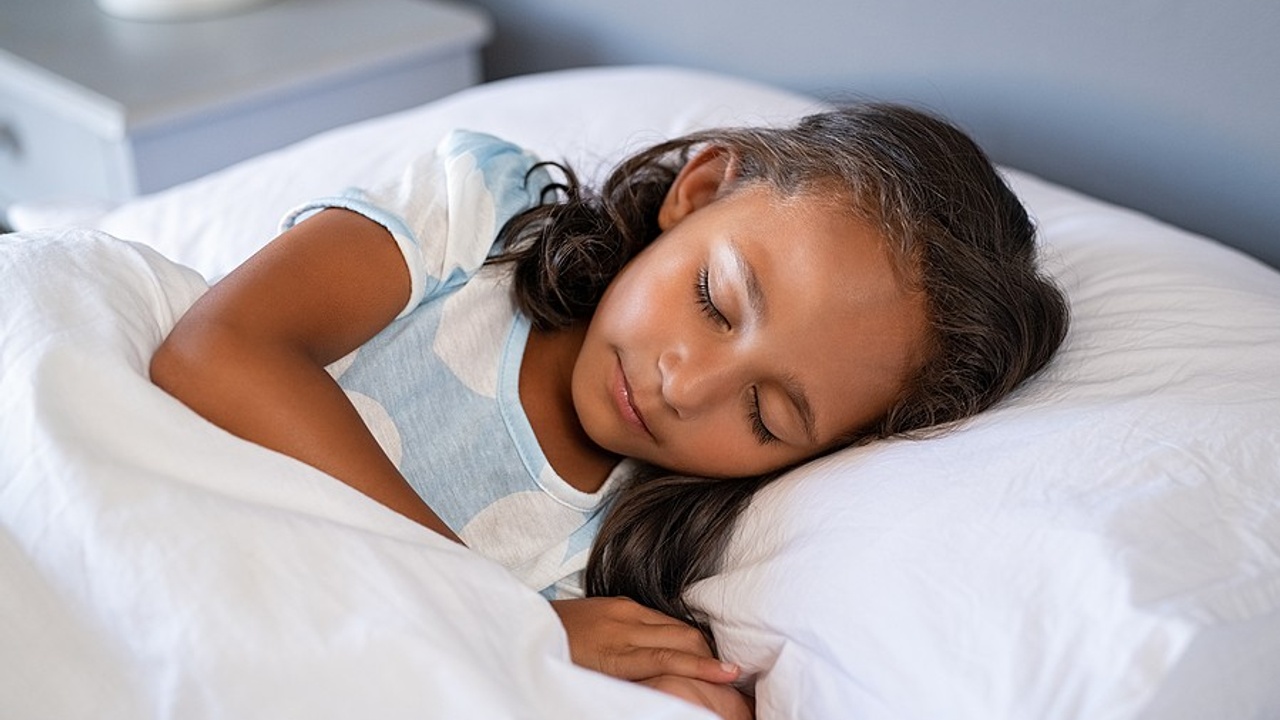
Guest Post from sleepauthorities.com
Sleep is something we all require. It improves our mental and physical health, and it is as important as eating, drinking, and breathing. However, some of us just do not get enough of it. Sleep even boosts our immune system, helping us fight off viruses, and preventing us from falling unwell as much.
One of the greatest culprits of not getting enough sleep- our kids, and when our kids refuse to sleep, we suffer for it too. Kept up by the kids wanting a late-night, resulting in us not getting what we need either.
Parents are tired enough as it is, we all deserve a good night’s rest. So, how can you get your kids to sleep, especially if they’re the type who wants to stay up and play? We have all the answers for you, right here. So keep on reading and learn the secrets to a successful bedtime.
Signs your kid isn’t getting enough sleep

When we are young, everything is exciting and there is so much we want to do, however, it is not unheard of for kids to suffer from sleep disorders, such as insomnia.
There are some signs you can pick up on that will tell you if your kid is not getting the sleep they need. In fact, a lack of adequate sleep can sometimes mimic the symptoms of ADHD, so keep an eye out and watch how they act during the day, including how they follow conversations and if they’re drowsy or sleep during a car ride.
Cranky and irritable
We get it, and kids do too. If your kid is cranky or irritable, the likelihood is that they are tired and are not getting enough sleep. We get this way when we don’t get enough sleep, so it is not surprising that kids do too.
Having trouble concentrating at school
Our minds are affected by how much we sleep, and if we do not get what we need, our brains suffer. This means concentration suffers. If your kid seems to be struggling to concentrate in school, they probably are not sleeping enough. If their teacher tells you they are struggling to concentrate, looking at their bedtime routine should be your first port of call.
Sleep & healthy mind: A connection
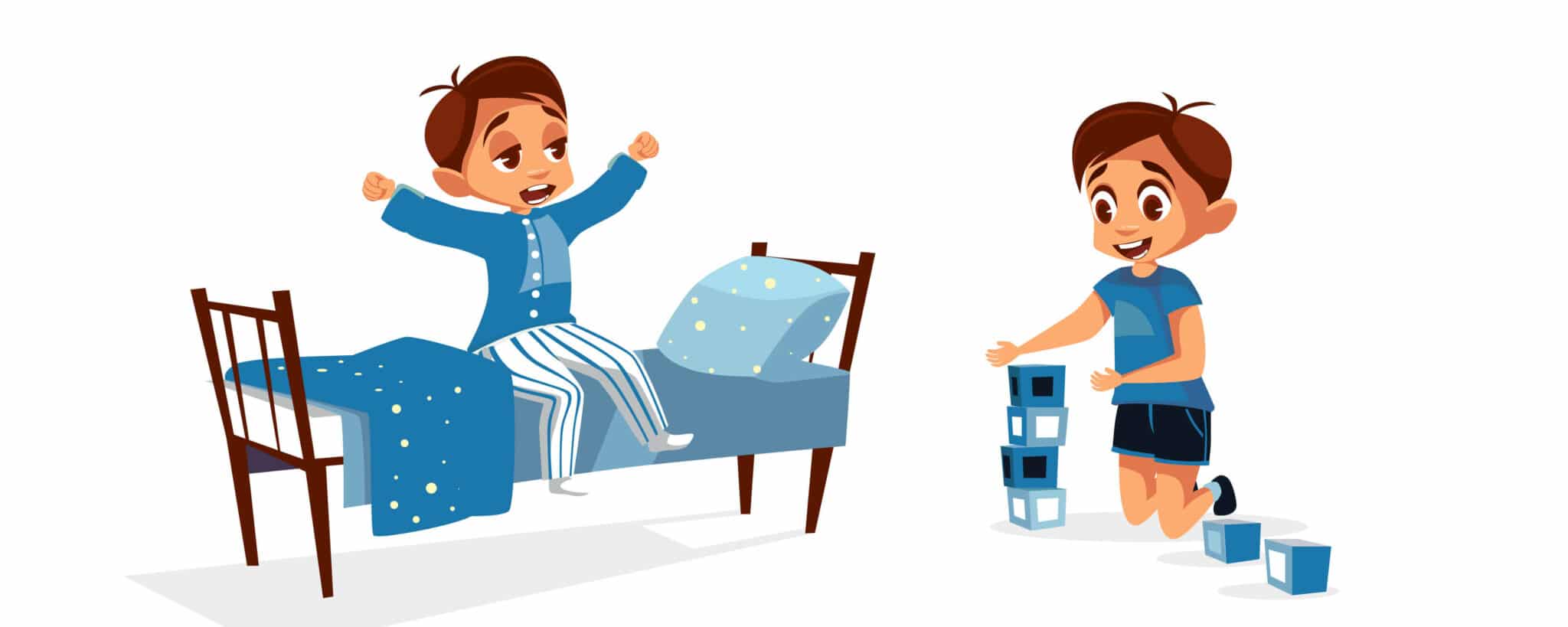
Sleep is very important for all people. It keeps us alert and aware and helps our bodies and brains function properly. If you are tired, it is hard to concentrate and focus, and your mind can drift, you become more forgetful, and you may find that you are moody.
It is no different for kids, and during this time in their lives, it is imperative that their minds are raring and ready to take in all the information they need as they learn in school, and as they develop.
Sleep is extremely important for kids
Sleep is essential for kids. It plays a large part in their development. Good sleep helps young minds stay alert and paying attention, however, it also plays a large part in their happiness too. Sleep will also affect their cognitive performance and development, their mood, resilience, vocabulary development, and their memory. During childhood, they need to retain all the information they will learn in school.
In infancy, sleep will also affect their growth.
Similarly, we all know that kids can catch illnesses off each other easily, and getting enough sleep helps to increase their immune system so that potential colds’ and flu don’t have as big of an impact.
Essential part of a healthy lifestyle
Getting enough rest is a necessary part of a healthy lifestyle. Sleep keeps our immune systems working and our minds healthy, whatever age we are. Our bodies need rest and recuperation to function properly each day, both physically and mentally. If we do not get the necessary amount of rest, we are more susceptible to falling sick, feeling lethargic, and not being able to concentrate properly.
As adults, this means we can suffer from colds and the flu more, and we can make mistakes at work or even while on the road too. For children, this can mean falling unwell is more likely, and they will suffer from a lack of concentration in school, which, especially at a young age, can be detrimental to their education in the long term.
Studies have shown that kids that have enough sleep have improved attention and behavior
There have been studies done that show that children who regularly get an adequate amount of sleep have improved attention, behavior, learning capabilities, memory retention, and overall mental and physical health.
Adults, or children, if you do not get enough sleep this can lead to high blood pressure, obesity, and even depression. Think of how you feel if you do not get an adequate amount of sleep, you are cranky your mood often plummets, and you become more sensitive, this is why.
For children, this can lead to issues, especially at school. If a child is cranky and depressed due to a lack of sleep, this can lead to issues, not only in their education but also in socializing.
Adequate sleep also has ties to digestion and metabolism. The better sleep you get, the overall healthier your body is. A lack of sleep can therefore be linked to obesity.
As we sleep, the brain rejuvenates and prepares for the day ahead, so good sleep will help a child to concentrate and stay focused in school, benefiting their learning in the long term. A good amount of sleep also makes us feel happy as we have more energy, therefore improving behavior as well.
Recommended amount of sleep

As adults, we should have between 7 and 9 hours of sleep per night. In fact, studies suggest that our sleep patterns in early life can contribute to a later dementia risk. Both insufficient sleep and sleeping for longer than we should have been linked with a greater risk of developing dementia. This as well as other things, as noted above, are why sleep is so important.
However, how much sleep your child should have depends on their age, as the older they get, the less sleep they need.
It depends on your child’s age
As an infant, meaning from 4 months until a year old, the child should have 12 to 16 hours of sleep including naps.
As your child grows, from ages 1 to 2, they require 11 to 14 hours of sleep, including naps. Then as a young child from 3 to 5 years old, they need 10 to 13 hours of sleep, including naps.
Then as your child becomes older, and is learning more, from ages 6 to 12, they require 9 to 12 hours of sleep, and finally in their teen years, 13 to 18, they require 8 to 12 hours of sleep.
Tips to sleep better
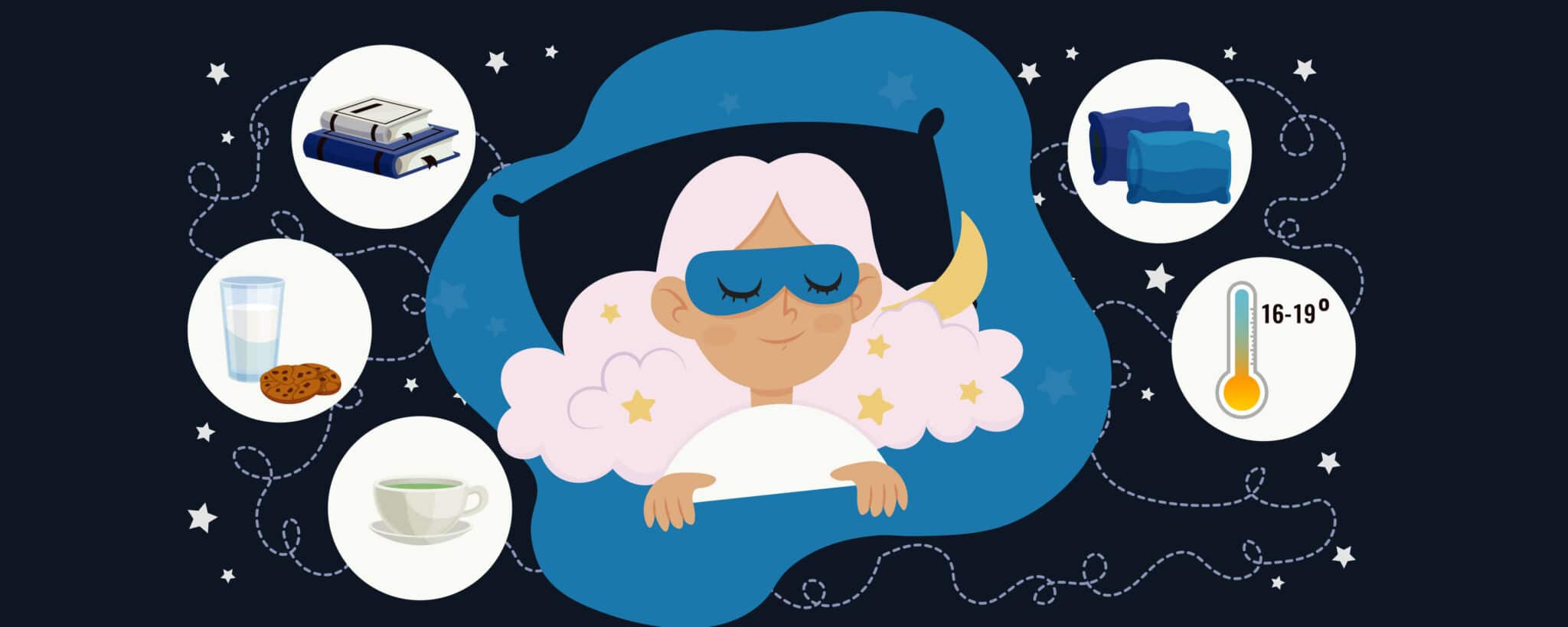
Whether we are an adult or a child, sometimes getting to sleep can be difficult. For those who live busy lives, getting to sleep can feel like an impossible task, and if you, or your child, have insomnia, it can be even harder.
Here are some tips that should help to make falling asleep a little less challenging. Trying to do all of these should help you not only fall asleep but stay asleep at night.
Set a regular bedtime routine
As an adult or child, our bodies work like timers, they get used to habits and habits can be used to our advantage.
Children love routine, and it gives their lives order and consistency. Studies show that setting up a good and consistent bedtime routine improves sleep in children who have moderate sleep issues. Routine can help teach your child to be sleepy, much like reading in bed can often help adults drift off to dreamland.
Think about a routine such as brushing teeth, putting PJ’s on, having some water to drink, or a glass of warm milk, or even a non-caffeinated hot chocolate to help them relax. A bedtime routine should be relaxing and calming. Reading to your child or providing them with books for bedtime can also be a great addition to a nighttime routine, if reading sends us to sleep, it can certainly do the same for them too.
Sleep environment
The environment in which your child sleeps will also have an impact, a dark and quiet space is ideal. If your child’s bedroom has a large window, try blackout curtains to provide extra darkness. If they do not like total darkness, then a night light can be suitable.
Ensure the noise level is low also, not just in the bedroom, but in the whole house. Once a child has gone to bed, this is not the time to put on a loud movie, start a serious conversation, have an argument, or start rearranging the furniture.
Quietness and darkness will help the body’s natural sleep instincts take over and help your child get to sleep better. These conditions should be consistent to aid them in staying asleep as well.
Similarly, ensure the conditions are right. Everyone sleeps better in a room that is cool but not cold, cool air coming in to assist with breathing clearly and maintaining our body temperature. However, ensure they are dressed adequately for bed, considering most young children will kick the covers off them in their sleep and cannot cover themselves.
Relax before bedtime
It is always a good idea to try and get your child to relax before they go to bed. Older children may find it easiest to wind down before bed with a good book, some gentle music, or even breathing exercises. However, if your child takes more than 30 minutes to fall asleep, they may need a longer wind-down time, and some extra bedtime routine before you turn the lights out to sleep.
Sipping warm and calming drinks such as hot cocoa, warm milk, or even herbal teas can be very relaxing and help you feel cozy before bedtime. Baths are also relaxing, helping to release those tense muscles and relax the body for sleep.
Electronic devices including phones, tablets, and televisions should be turned off for an hour or so before bed to help induce sleepiness that will aid in getting to sleep faster. While some phone and tablet games are great for relaxing the mind, blue lights keep you awake. More on this later.
Reading is one of the most popular techniques to help aid in sleep. So, a killer combo is a warm drink and a good book. For older kids, this is a great idea to help them wind down and get to sleep easier.
Regular sleep and wake up times
We have already spoken about routine, and this falls into that category as well. Regular wake and sleep times will assist in helping the body clock get you to sleep. Everyone has a body clock, and each person will have something known as circadian rhythm, this is the body’s clock that initiates sleep. The traditional body clock revolves around natural instinct, making us tired at sunset and wake at sunrise.
However, not everyone is the same, this is where the concept of night owls and early birds comes from. This circadian rhythm is built throughout our lives, and as adults revolves around our work lives. For children, their circadian rhythm means that they need to have regular sleep and wake-up times, just like we do, in order to have a healthy sleep-wake lifestyle.
While plenty of adults may not adhere to this due to working lives, it is imperative for children to have this. Try to get your child accustomed to a set bedtime that applies to both weekdays and weekends so that they have a consistent sleep schedule. Doing so will ensure they get enough sleep, and they do not feel the need to ‘catch-up' on sleep, as this can mess up their body clock.
Keep older children’s nap time short
Following on from this, while younger children are likely to have naps throughout the day to get as much sleep as they need, in older children, this is not necessary. It is best to keep older children from having fewer or shorter naps. This will prevent them from disrupting their circadian rhythm and not feeling tired when it is bedtime.
Typically, children should no longer be taking regular naps by the time they are 5 years old. Typically, they will stop napping between ages 3 and 5. However, if your child is over 5 years old, and they are still napping during the daytime, try to keep it to 20 minutes and no later than the early afternoon. Long and late naps make it harder to fall asleep at night, and this will then result in it messing up their bedtime routine.
Ensure your child feels safe at night
Sometimes children may feel scared at night, when it is dark. If they are scared of going to bed or being in the darkness, then be sure to praise them and reward them for bravery relating to this.
Always avoid scary TV shows, films, and games close to bedtime. If your child does suffer with any bedtime fears, then you can always resort to using a night light to help them feel safe.
Similarly, ensure that their regular environment feels safe to them. If they feel anxious at night, this can cause sleeplessness and insomnia. This means that ensuring there are no problems at home that may make the child feel uneasy or unsafe. If the child does not seem to be sleeping well or complains of feeling anxious or nervous at night, try to find out why and resolve the issue to help them get better sleep and feel safe and secure.
Reduce blue light exposure
Blue light is the light we get from electronic devices, TV’s, computers, tablets, and mobile phones. This type of light reminds our brain of daytime and can make the brain reluctant to go to sleep as it fools it into thinking that it is day, making us more awake.
You can get special glasses that filter out this type of light, which can help to combat the effects of blue light exposure before bedtime. There are also apps that filter this blue light, they will shift the color tone of a screen towards warmer wavelengths on the spectrum of light, which will lessen the effects that blue light has on our brains.
A good idea is to stop the use of electronic devices around bedtime, at least an hour before bed, to stop the light from screens from having this effect.
Some lightbulbs may also emit a light that keeps us awake. If you can acquire color-changing bulbs, red is ideal, as it does not suppress melatonin production and therefore helps us to feel tired. Yellow and orange are similar. Warmer colors are more useful as reading lights and night lights, helping our bodies naturally feel more tired.
Avoid the clock
So many people have a bad habit of worrying about bedtime. Thinking of how much sleep they will get if they fall asleep now, or now… or now. This clock watching can actually prevent you from falling asleep and will end up making you anxious about how much sleep you will get. Adult or child, this can be a problem.
If your child is clock-watching at night, perhaps suggest moving it to a different spot where it cannot be seen from bed to prevent this.
We are all guilty of clock-watching at some point, especially when we have to do something special or different the next day, perhaps a school trip, a play, a concert, or another event. The adrenaline is pumping, and we watch the clock and worry about how much sleep we will get. Removing the ability to watch the clock will help your child sleep easier, so they are not thinking about time.
Eat at the same time
Just like sleep, having an eating schedule tunes your body clock. Many people will have breakfast in the morning, lunch around noon, and dinner in the early evening. Spacing out these meals. Keeping a regular eating schedule for your child will help their body adapt to this, and eating at a reasonable time aids in sleep.
If your child feels too hungry or too full before bed, which can make them alert or uncomfortable, thus making falling asleep much harder. A healthy breakfast for your child in the morning will help their body clock jump into action at the right time and give them the energy to start the day. Lunch at a good time will assist in keeping them awake, and a nutritious meal for dinner will give them the energy and sustenance for the rest of the day, preventing hunger around bedtime.
However, do not let them eat too close to bedtime. No food should be consumed for an hour and a half to two hours before bed, this is to prevent digestion from impacting sleep. You should always check any ingredients in your child’s food or snacks, keeping a close eye on things such as caffeine, red dye, and sugar. Meaning sodas, juices, and chocolate are things to steer clear of in the run-up to bedtime.
Get plenty of natural light
It is also important that your child gets as much natural light during the day as possible, especially in the mornings. Bright light suppresses melatonin, which helps your child feel awake, alert and energetic during the day, and sleepy toward bedtime.
If you have ever worked from home or had a few days cooped up indoors, you will probably have experienced this in action. When we stay indoors a lot, we do not get the vitamin D we need to feel energetic and awake (hence why some people will take vitamin D supplements) this makes us feel more lethargic during the day and more awake at night as our bodies have not had the natural melatonin production process.
Ensuring that your child gets plenty of natural light exposure in the mornings and daytime will ensure their natural body clock does exactly what it is supposed to.
Work as a team
Parenting is about teamwork. Always ensure that you discuss and agree on sleep strategies for your child with your partner to work as a unit to ensure it works. Otherwise, you cannot expect the child to learn, change their behavior, or even comply.
If you decide to start a new sleep routine for your child, let them be part of the team and discuss it with them, especially if they are old enough to understand it. Plan it out and talk to them through it. If the child is young, you can always use imagery to explain the routine to them.
Communication is key in any relationship, even parent and child, and this kind of communication and teamwork is where plans and routines work best.
No caffeine
While most people will think of coffee straight away at the mention of caffeine, it is in more foods and drinks than you may think. Caffeine is in energy drinks, coffee, tea, chocolate, and sodas. These things should all be avoided as bedtime approaches, keeping them at bay in the late afternoon and evening. It is recommended to cut off the consumption of caffeine at a minimum of 6 hours before bedtime. So, if your child goes to bed at 8 pm, then no more caffeine should be consumed after 2 pm.
Always check food and beverages for caffeine in their contents, even a tiny bit of chocolate can have a massive impact on sleep if consumed too close to bedtime.
Remember: Always try your best
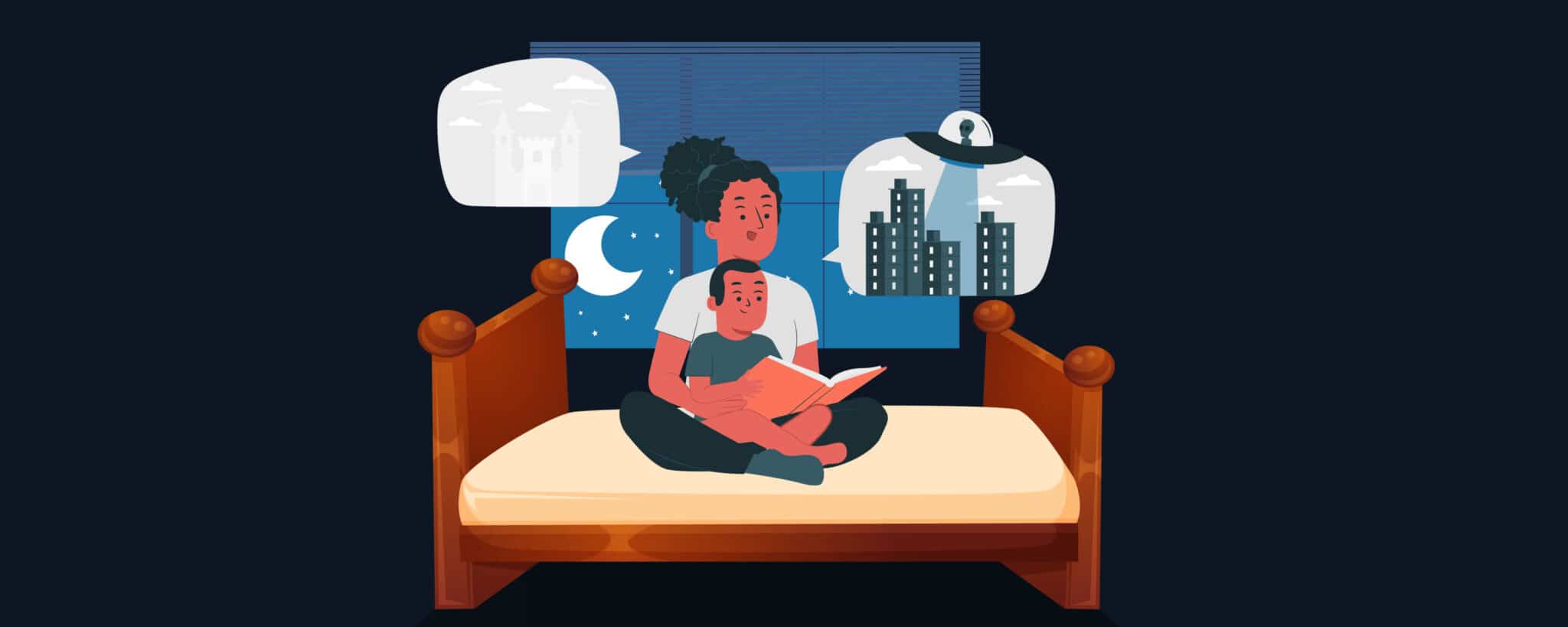
It is not always easy to try and get your kid into bed. Some kids just do not want to go to bed, and sometimes activities will make them wired. If your child has been part of a Christmas play or been at a friend’s house, they may be excited and full of energy.
Bedtime routines can help to calm them and give them things and activities that their brain will associate with sleep. It can be hard to find that thing that will help your child sleep better, but there are many things to try out. Just try your best, and remember, if it doesn’t work this time, don’t beat yourself up about it, keep trying, and you will get there.
Kids will always ask a last request before bed
Do not forget, kids will always ask for one thing before they go to bed, be it a hug and snuggles with their parents or pet, some water to drink, a trip to the bathroom, or just one more book.
This is normal. Think of your own bedtime routine, you know what you want and need to do before bed, the child knows too. If they need to go to the bathroom, do not stop them, as it can make them uncomfortable and cause even more issues if they try to sleep on a full bladder, or if they are thirsty.
Some children will find reading to be relaxing, and they may ask for one more book because that first one didn’t quite do the trick, however, knowing the difference between an excuse to stay awake, and a child genuinely asking for help falling asleep, is a thin line.
Do your best to try and stop requests before bedtime
If you can, try to incorporate these requests into your child’s bedtime routine. Perhaps start off with PJ’s and some warm milk, some hugs from the family, then brushing teeth and using the bathroom, a drink of water then climbing into bed and reading a good book to finish off. But, let your child know once they are in bed, they must stay in bed. (Of course, needing the toilet during the night is an exception to avoid accidents. If you’ve got to go, you’ve got to go.)
Don’t give up or react to your child’s behavior
However, not every child will only get up if they need the bathroom, sometimes they just want to stay up. Do not give in or react to their behavior. Simply take their hand and take them back to bed. Do not get into a debate, argument, or give into requests, as this means you’re giving them extra attention and a delayed bedtime.
Never fall for the ‘just this once’ line, as it will often become more than once, and you can destroy the routine you have built just by allowing it ‘ just this one time’.
The most difficult part from this is understanding where the line is between genuine sincere requests like needing to use the bathroom, and excuses to stay awake. While toilet requests can seem like an excuse, it is wise to know that if they do genuinely need to use the restroom, and they are denied this it can create issues. Holding your bladder for too long can weaken the muscles and cause urinary incontinence, and holding your bladder for too long can also create urinary tract infections– especially in girls. Try to find the difference between excuses and genuine requests and needs.
Summary
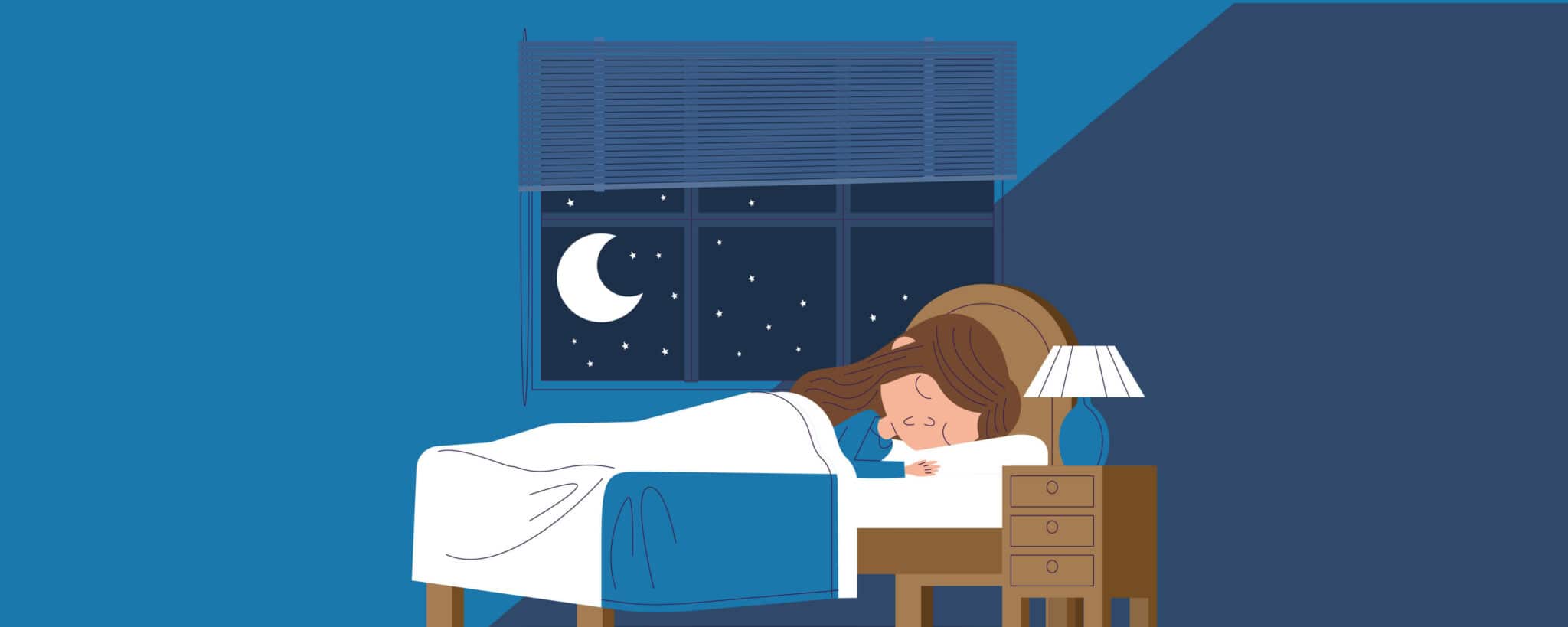
Getting your kid to go to bed is no easy feat, but it is doable. Being a parent is tough enough without being tired all the time because your kid won’t go to bed. Forging a good bedtime routine is the cornerstone of getting your child to go to sleep and have a decent circadian rhythm that means bedtime stays the same.
If your child has a designated bedtime, then you will find more time for yourself and have time to rest and recuperate as well. Bedtime routines can be as simple as managing eating habits, restricting caffeine and blue lights, reading, and having a cozy warm beverage before bed.
Different things work for different people, so do not be afraid to work with your child to forge the perfect routine for you all.

